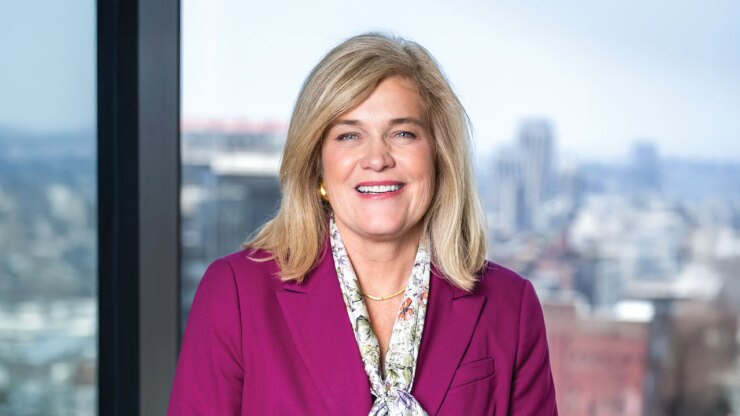Want unlimited access to top ideas and insights?

Jenny Johnson believes Franklin Templeton has unlocked the key to bringing investments in private markets to more clients, a trend that is likely to accelerate under Trump administration policies designed to broaden access to private equity, real estate and other less liquid investment options. The key is something the firm has been doing for three decades—educating financial advisers.
Advisers want to give their clients more options, said Johnson, president and CEO of Franklin Templeton, which manages about $1.6 trillion in assets. "There's a real recognition that it's kind of un-American if we don't all have fair access to the same kinds of investments."
But it is not enough to pick a good product, she said. "If the firm behind that product hasn't surrounded it with really robust education, it's too hard for the advisers to understand."
Franklin Templeton is pairing its private market products with an in-house academy founded in 1995 when the firm began distributing mutual funds in India. The Franklin Templeton Academy helped that country's financial advisers grasp what was then a new product for them and their clients. It now serves the company's needs globally.
Is it working for private markets? In January, Franklin Templeton launched a private equity product called the Franklin Lexington Private Markets Fund. Known as FLEX, the fund has grown to $2.5 billion in assets under management, while continuing to attract monthly inflows of between $100 million and $200 million, Johnson said. The firm also now offers two real estate funds.
"It's a strategy that everybody's been talking about in the industry for a while," Johnson said. "It's been slow to prove out, but I think this has been a real breakout year for us."
Franklin Templeton also is seeing returns from its investments in actively traded ETFs and separately managed accounts, Johnson said. The firm's ETF business is now at $44.1 billion in assets, with $4.3 billion added in the second quarter alone.
"We're really pleased with that because that's a new area for us," Johnson said.
The firm is in need of positive flows. Franklin Templeton suffered through some of the worst quarterly outflows in its history during the third quarter of 2024. The investor drawdowns followed allegations against the co-chief investment officer of a fixed-income subsidiary, Western Asset Management. In November, the U.S. Securities and Exchange Commission charged the former co-chief, Ken Leech, with cherry-picking – favoring some clients with trades at the expense of others.
In a statement, a company spokesperson said: "Western Asset, while experiencing long-term net outflows, has shown signs of stabilization. Gross sales are positive, and over 80% of its composites have outperformed their benchmarks year-to-date as of June 30, 2025. Across the broader firm, we are seeing organic growth in areas where we've made strategic investments."
Artificial intelligence is one area starting to deliver returns for the company, which was founded by Johnson's grandfather. Franklin Templeton, for example, has been using AI to reduce the time it takes to generate first drafts in response to requests for proposals, Johnson said. What took once took about 18 hours now takes about 14 minutes.
"That is going to be an amazing tool," Johnson said. But it is not one that she expects advisers to eagerly adopt. So, she has been trying AI tools on her own as a way of helping her team think about how to use them. One app helps her prepare for media interviews. Another composes songs based on information and themes that users suggest.
Johnson is drawing additional inspiration from her role as a board member at Thermo Fisher Scientific. The company sells products and services used in research, including in the life sciences. She relishes the exposure to the latest advances in healthcare, but also to other ways of thinking about governance.
"It really, to me, demonstrates the power of diverse thinking," she said.





